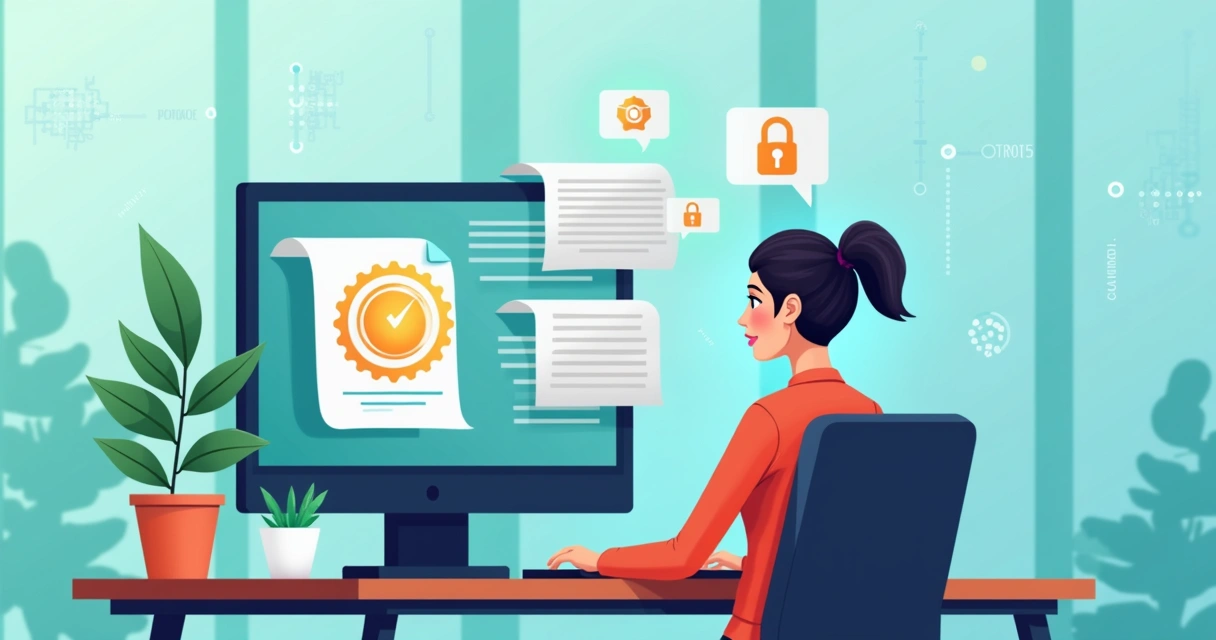Digital signatures sound technical, futuristic, even risky for some. In 2025, most business owners, freelancers, and remote teams have at least considered them. Yet, confusion remains. It’s easy to fall for myths, especially as more organisations look for faster, safer document signing. CloudSign.ie has seen these myths up close, every day, we help people replace old paper habits with smarter, AI-powered processes. Let’s clear up the doubt. Here are eight myths about digital signatures, with the plain facts.
Myth 1: digital signatures are not legally binding
This is a stubborn one. Many still think a digital signature is just scribbling your name with a finger or typing a few characters, with no legal power behind it. Actually, since 2016, Ireland and the EU have recognised electronic signatures under the eIDAS Regulation. This law gives digital (and advanced electronic) signatures specific legal status, provided certain conditions are met.
Yes, some documents (like wills or powers of attorney) still need a wet-ink signature, as highlighted by the Law Society of Ireland. But for the vast majority of agreements, a high-quality digital signature from CloudSign.ie does exactly what a handwritten one would, only quicker, safer, and without the post.
Myth 2: digital signatures are the same as electronic signatures
Sometimes these two terms get swapped around, but they are not identical. In short:
- Electronic signature: Any electronic process or symbol attached to a document to show intent (could be as basic as typing your name).
- Digital signature: A specific type, using encryption, certificates, and security standards to prove document authenticity.
Why does this matter? A digital signature is simply much harder to forge or tamper with. At CloudSign.ie, digital signatures always include this extra cryptographic layer, so even years later, you can prove the document is authentic, unaltered, and truly yours. The Law Society of Ireland underscores the difference, and the extra peace of mind for big deals or sensitive files.

Myth 3: digital signatures are easy to fake
"Can’t someone just copy my signature image and paste it on another document?" This fear made sense in the age of basic scanning and PDFs. But digital signatures generated by CloudSign.ie use encryption and create a unique digital fingerprint for each document. If a single character changes, the fingerprint changes too. In practical terms, you can always prove if a document is the original or someone tampered with it.
For sensitive business deals, this tamper evidence is critical. We take every step to make fraud nearly impossible. Compared to paper signatures, digital options from CloudSign.ie are far more resilient.
Myth 4: only large companies benefit from digital signatures
It’s true that banks, multinationals, and law firms were first to ask for digital contracts. But today, even freelancers and small Irish businesses save time (and headaches) with platforms like CloudSign.ie. On our forever-free individual plan, anyone can send documents from anywhere, no need for premium plans.
Need to close a client deal while traveling? Approving a supplier when working from home? With CloudSign.ie, “you can sign from your kitchen table or the other side of the world.” More on how anyone can start, over at our beginner’s guide to electronic signatures.

Myth 5: digital signatures are too complicated to use
When digital signatures first appeared, maybe they seemed daunting. “Too technical, too many steps.” But 2025 is a different world. Modern platforms like CloudSign.ie have focused on simplicity:
- No need for IT training or lengthy setup.
- Just upload, sign, and confirm.
- Automated workflows guide users from start to finish.
If you know how to send an email, you can send a digital document with CloudSign.ie. Our AI-driven hint system even helps suggest next steps as you go. For those still worried, there are practical breakdowns available in our digital signature software overview.
Myth 6: digital signature software is expensive
Cost used to be a barrier. A few years ago, only big budgets could afford trustworthy digital signing tools. These days? Free options exist that don’t skimp on security or features. CloudSign.ie’s forever-free plan lets individuals send up to 21 envelopes per month at no charge, no hidden fees, no forced upgrades.
Competitors like DocuSign or Dropbox Sign do offer digital signature products, but most restrict free usage or limit advanced tools. CloudSign.ie is really focused on making security, speed, and smart AI tools available to everyone. Check our guide to top electronic signature programs to compare options.
Myth 7: digital signatures are not secure enough for sensitive documents
Some still worry about trusting contracts, NDAs, or employee forms to the cloud. But encryption, multi-factor authentication, and tamper-evident audit trails are now the standard. CloudSign.ie uses the latest AI and security protocols, protecting both your documents and your business reputation.
For the most sensitive documents, advanced and qualified digital signatures add legal proof that meets EU and Irish requirements. The safety provided by providers like CloudSign.ie is simply beyond what most manual paper processes could ever offer. For more on compliance and when to use extra secure options, our legal update for electronic signatures in Ireland may help.
Security is a process, not a one-time solution.
Myth 8: you can’t integrate digital signatures with everyday tools
A lot of people think they’ll get “locked in” or forced to switch their workflows to use digital signatures. Not true, at least, not on CloudSign.ie. Our platform connects easily with common tools like Google Drive, Slack, and leading CRM apps. This lets you send, sign, and manage contracts inside the apps you already use.
If your company uses custom software or less popular tools, CloudSign.ie provides open integrations and an API for tailored automation. You shouldn’t have to change how you work, just because you want to speed up how you sign.
Conclusion: digital signatures in 2025, no more excuses
The old worries are quickly being replaced by trust, familiarity, and convenience. In 2025, digital signatures are everyday business tools for companies of every size. With CloudSign.ie’s flexible, secure, and affordable solution, backed by a forever-free plan, there’s never been a better time to switch.
Don’t let myths dictate how you do business.
Ready to stop printing, posting, and waiting? Try CloudSign.ie today to work faster, safer, and smarter.
Frequently asked questions
What is a digital signature?
A digital signature is an encrypted electronic “seal” applied to a document. It proves the document’s origin and ensures no changes have been made since signing. Unlike simple electronic signatures (like typing a name), digital signatures use secure technology for authentication and integrity. If you want a more detailed look, our beginner’s guide to electronic signatures is helpful.
How secure are digital signatures?
Digital signatures provided by platforms like CloudSign.ie are highly secure. Encryption, unique document fingerprints, and audit logs make them extremely hard to forge or alter. Advanced and qualified electronic signatures, required for the most sensitive files, offer even more protection, as explained in guidance from the Law Society of Ireland.
Are digital signatures legally binding?
Yes, in Ireland and the EU, digital signatures have clear legal backing thanks to laws like the eIDAS Regulation. Just be aware that some special documents (such as wills) must still be signed by hand. For most day-to-day business, contracts signed digitally on CloudSign.ie are fully valid, as our legal facts article explains.
How do I get a digital signature?
You can register with a trusted service like CloudSign.ie. Once signed up, you upload a document, follow step-by-step prompts, and add your signature. You don’t need special hardware or software. Our platform creates the secure signature for you, along with a digital certificate.
Can digital signatures be forged?
It’s extremely difficult, much harder than forging pen-and-paper signatures. Digital signatures use cryptography. Each signature is unique to the signer and the document. If anyone tries to change the file, the system automatically flags it. This gives a much higher level of confidence than traditional signing, particularly when using providers like CloudSign.ie that prioritise security.
